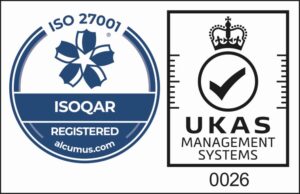The Role of IT MSPs in Data Privacy and Compliance: Safeguarding Sensitive Information in the Digital Age
In today’s data-driven business landscape, organizations face increasing pressure to protect sensitive data and comply with stringent data privacy regulations. Data breaches and non-compliance can have severe consequences, including reputational damage, financial losses, and legal liabilities. This is where IT Managed Service Providers (MSPs) play a crucial role in assisting businesses in maintaining data privacy and ensuring compliance. Let’s explore the role of MSPs in data privacy and compliance and how they safeguard sensitive information:
Expertise in Data Privacy Regulations
MSPs possess in-depth knowledge of data privacy regulations and industry standards, such as the General Data Protection Regulation (GDPR), the California Consumer Privacy Act (CCPA), and others. They stay updated on the evolving regulatory landscape and help businesses understand their compliance obligations. MSPs provide guidance on data handling practices, consent management, data retention, and other critical aspects of data privacy.
Risk Assessment and Compliance Audits
MSPs conduct comprehensive risk assessments and compliance audits to identify potential vulnerabilities and gaps in data privacy practices. They evaluate data storage and transmission processes, security controls, and data access protocols to ensure they align with regulatory requirements. MSPs also assess third-party vendors and service providers to ensure they meet the necessary privacy and security standards.
Data Protection and Security Measures
MSPs assist businesses in implementing robust data protection and security measures. They help organizations establish data classification frameworks, encryption protocols, and access controls to safeguard sensitive information. MSPs also deploy advanced security technologies, such as intrusion detection and prevention systems, firewalls, and data loss prevention tools, to detect and mitigate potential threats.
Incident Response and Breach Management
In the event of a data breach or security incident, MSPs play a crucial role in incident response and breach management. They have well-defined protocols and response plans in place to minimize the impact of a breach and facilitate quick remediation. MSPs work closely with businesses to investigate incidents, contain the breach, notify affected parties as required by regulations, and assist in the recovery process.
Data Backup and Disaster Recovery
MSPs help businesses establish robust data backup and disaster recovery strategies. They ensure that critical data is regularly and securely backed up to prevent data loss in the event of a cyberattack, hardware failure, or natural disaster. MSPs also test and validate data recovery processes to ensure the availability and integrity of data during unforeseen events.
Privacy by Design Approach
MSPs embrace a privacy by design approach, where privacy and data protection are built into the design and development of systems, applications, and processes. They work closely with businesses to assess and mitigate privacy risks during the implementation of new technologies and systems. By considering privacy and compliance requirements from the start, MSPs help businesses embed data protection principles into their operations.
Ongoing Compliance Monitoring and Reporting
MSPs provide ongoing monitoring of data privacy practices and compliance adherence. They continuously assess and validate controls, conduct security audits, and generate compliance reports for businesses. MSPs help organizations demonstrate their commitment to data privacy and compliance to regulatory authorities, clients, and stakeholders.
Employee Training and Awareness
MSPs recognize the importance of employee awareness and training in maintaining data privacy and compliance. They offer training programs and workshops to educate employees on data handling best practices, security protocols, and privacy obligations. By raising employee awareness, MSPs help businesses create a culture of privacy and ensure that data protection practices are followed at all levels of the organization.
By partnering with IT MSPs, businesses can leverage their expertise in data privacy and compliance to ensure the protection of sensitive information and maintain regulatory compliance. MSPs assist organizations in implementing robust data privacy practices, mitigating risks, and building trust with customers and stakeholders in an increasingly data-centric world.




